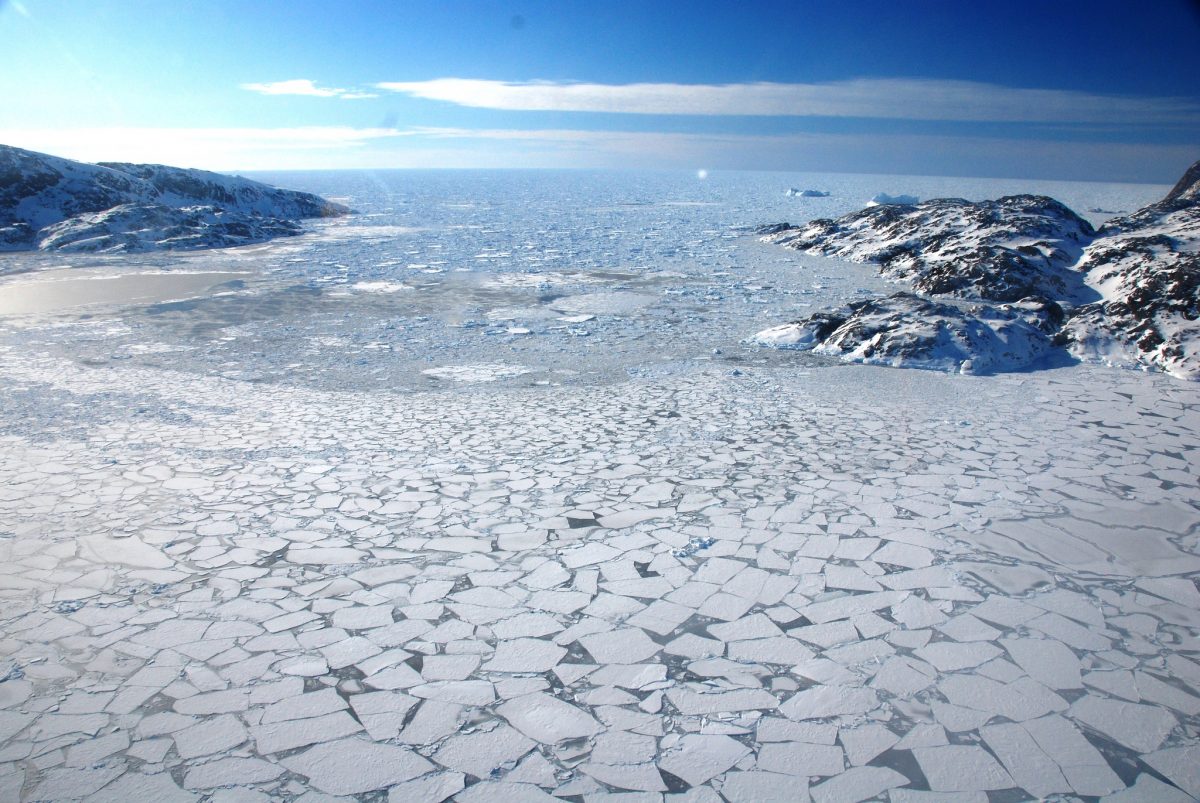According to ancient lore, Erik the Red gave Greenland its name to entice settlement by his fellow Vikings, even though the rocky, ice-crusted landmass had hardly so much as a green speck. Today, Greenland is losing that icy cover at record speeds, but it’s causing Arctic havoc rather than a spring blossom.
A study released this week in the journal Nature Communications explains that the speed at which Arctic Ice is melting is only increasing thanks to a phenomenon known as “Arctic amplification.” Arctic amplification functions as a positive feedback loop: rising global temperatures melt Arctic sea ice, which leaves open water to absorb more solar radiation, which then warms the Arctic even more to melt more ice. The phenomenon is widely recognized as exacerbating ice melt, but this new study lands Arctic amplification in a specific place and time: Greenland, summer 2015.
A high-pressure system that sailed across the far north last year launched the summer of massive melting. When it brought warm, clear skies to northern Greenland, record surface temperatures and run-off were recorded. To make matters worse, when little snow falls, another feedback loop begins. With less snow, the surface becomes less reflective, which means it absorbs more heat to warm surfaces even more rather than bouncing some of the heat back into the atmosphere.

This current summer looks to parallel the last. On June 9, Greenland’s capital of Nuuk reached 75 degrees F, the warmest June temperature ever recorded there, according to Jason Samenow of the Washington Post. “It was warmer in Nuuk than it was in New York City, where the high was only 71 degrees,” Samenow said.
Greenland is the Earth’s second-largest ice sheet after Antarctica. If all of its ice melted, the average global sea level would increase by a full seven meters, and the runoff would vastly alter ocean circulation and ecology.










